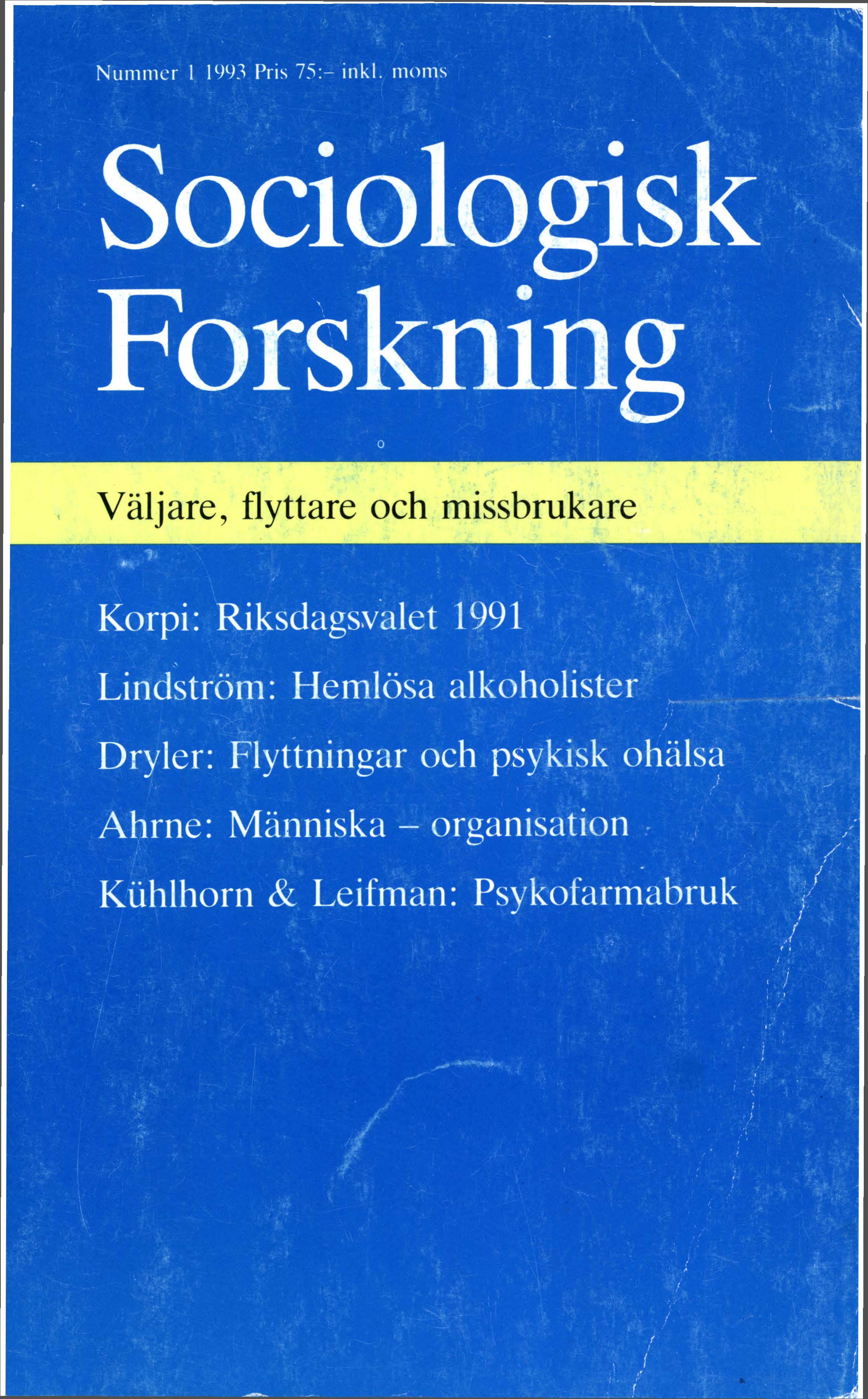Socialtjänsten och den hemlöse alkoholisten
DOI:
https://doi.org/10.37062/sf.30.18629Abstract
Welfare agencies and the homeless alcoholic
The attitude towards homeless alcoholics has been characterized either by resignation, providing food and shelter and controlling drunkenness only, or by unrealistic ambitions, expecting immediate rehabilitation to a sober and independent way of life. In this article, a different attitude is proposed. Studies from Sweden and England especially, suggest that the homeless person will benefit from a program providing long-term care and a chain of options leading from the soup run to a bedsitter. Each step towards larger autonomy has to be quite small and adequate provision has to be made at each level for those who cannot move further. Enforced treatment, from contingency contracting to involuntary committment, seems to be effective as a life-sustaining device when used occasionally to control drunkenness. However, this approach tends to run counter to the needs and aspirations among professionals in the welfare agencies. Surveys show that those who work with homeless alcoholics often want to achieve more advanced goals than are feasible and also would like to deal with younger clients more fit for work. Since helping the traditional homeless group does not offer the recognition or the sense of accomplishment that most people need, professional attention has been directed towards other groups instead. For similar reasons, there has been a neglect of the long-term mentally ill in psychiatry. The tendency to exclude these groups from adequate care and surveillance cannot be counteracted unless a long-term perspective on their problems is adopted and moderate steps towards larger autonomy are given professional recognition and reward.
Downloads
Published
How to Cite
Issue
Section
License
All content in Sociologisk Forskning is published with immediate open access, under the Creative Commons license CC BY-NC-ND 4.0.
All content may be read, downloaded, shared and printed for non-commercial purposes, free and without fees. Contents may not be altered. When content is reused, author, source and a link to the copyright licence must be provided. The author retains copyright to their content. No publication fees are charged.





